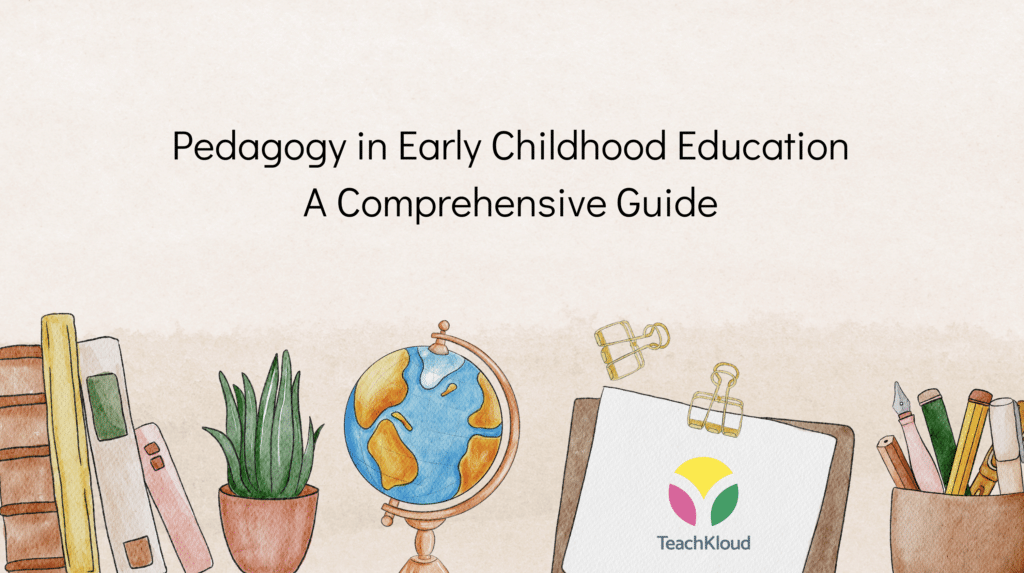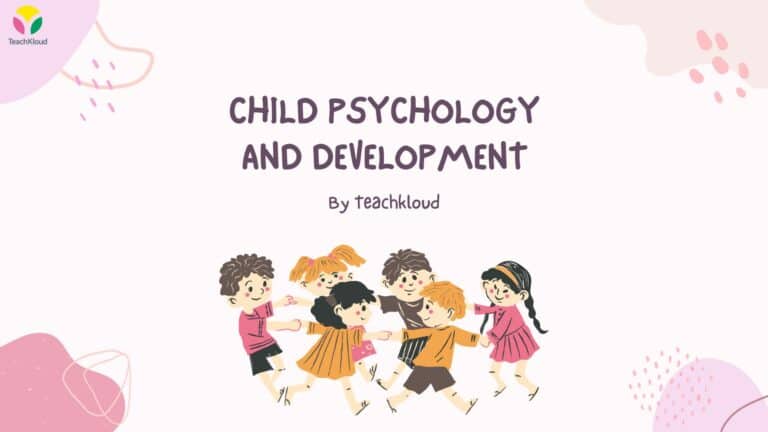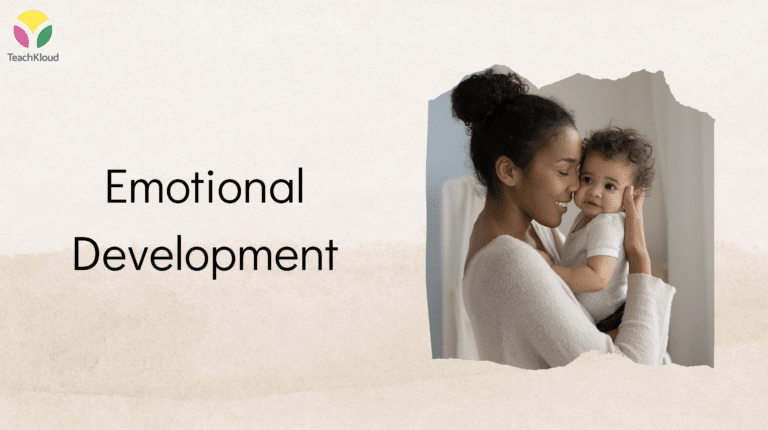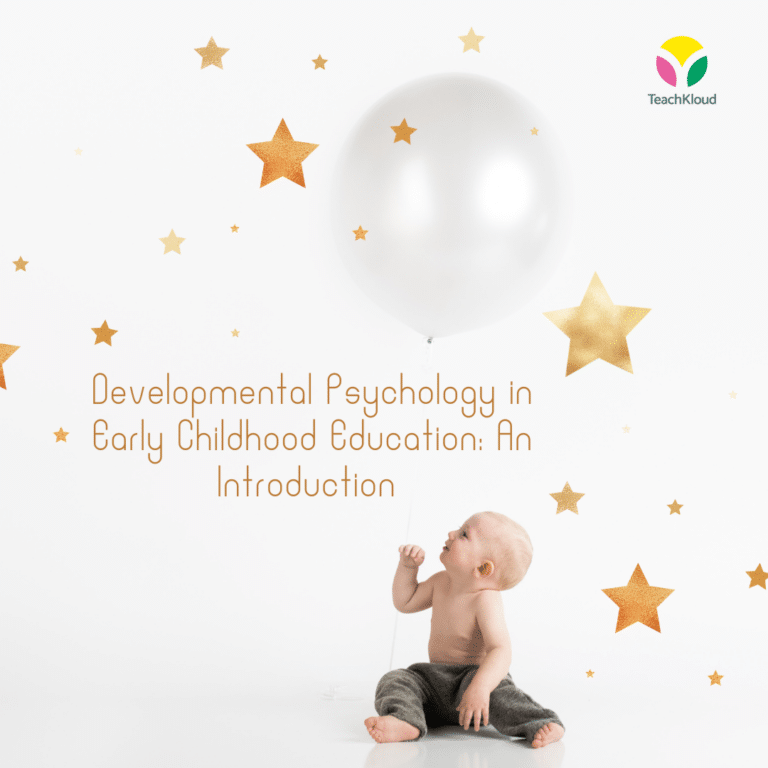What is Pedagogy in Early Childhood Education?
Quite fundamentally, pedagogy in early childhood education involves the methods employed to educate young children. Pedagogy is not merely a meshwork of teaching strategies; rather, it is grounded in philosophy, values, and beliefs that influence all facets of an educational programme. It forms the bedrock of impactful, high-quality learning experiences, which are pivotal in a child’s cognitive, emotional, and social growth.
Essentially, early childhood pedagogy draws upon pedagogical theories to create meaningful and interactive learning environments. Primary among these are the Constructivism and Socio-cultural theories. Constructivism, dominated by the ideas of Piaget and Vygotsky, emphasises the continuous creation of meaning by learners themselves, relating new information to their prior experiences. Its counterpart, Socio-cultural theory, developed by Vygotsky, underscores the importance of social interactions and cultural tools in children’s learning.
A remarkable feature of early childhood educational pedagogy, which sets it apart, is its learner-centric approach. The central idea is to validate, amplify and respond to the voices of children by respecting their individual abilities and involving them in the decision-making process. This approach aids in fostering a sense of agency in children, ultimately leading to an enhanced learning experience.
An old Chinese proverb says: “I hear, and I forget. I see, and I remember. I do, and I understand.” This same principle marks the essence of pedagogy in early childhood education, whereby children discover, experiment, and comprehend through interactive play-based learning modules.
Capitalising on this concept is the paradigm of ‘learning through play’. It is the weapon of choice in any skilled educator’s arsenal, owing to the innate curiosity and exploratory nature of children at play. Provision of thoughtfully planned, motivating, and age-appropriate play opportunities burgeons intellectual, social and emotional development in children.
Components of Effective Pedagogy in Early Childhood Education
A wide range of components, tactically interwoven, shape effective pedagogy in early childhood education, some of them include:
- Explicit programming: Drawing on children’s interest, abilities, and needs while planning activities or scenarios. This fosters purposeful and deep learning.
- Ongoing observation and assessment: This supports educators in recognising children’s learning progress, identifying areas of growth, and adjusting learning experiences accordingly.
- Building relationships and interactions: Regularly engaging with children helps strengthen a child’s confidence, self-esteem, and encourages an open dialogue between the child and the educator.
- Inclusion and diversity: By promoting pluralism and inclusivity, children learn about acceptance, empathy, and respect for other cultures and perspectives at a tender age.
Pedagogy, when understood and implemented astutely, enhances the quality of education and builds a thriving landscape for learner engagement and success. It enlightens young minds, charges their curiosity, and creates lifelong learners who are well prepared for future challenges. Although there are similar components to effective pedagogy in early childhood education, there are a variety of pedagogical methods.
Pedagogy in Early Childhood Education: The Pedagogical Methods
Bringing the pedagogical approach to life in an early childhood setting involves a mix of methods, strategies, and principles. Understanding these can lead to a higher quality learning environment. P.S. If you are looking to improve your observational and assessment practies, we have developed a 30 minute professional development masterclass here. Watch and learn at your own pace, with a certificate at the end of the masterclass.
Let’s discuss the various pedagogical methods commonly used in early childhood education:
Direct Instruction: This is a teacher-centred method, where you, the educator, would take the lead in teaching. It involves clearly explaining educational content, demonstrating skills and tasks, and providing systematic and sequenced guidance to children. Even though this might seem a ‘traditional’ approach, it’s essential in certain scenarios such as explaining safety rules or teaching foundational skills.
Play-Based Learning: Recognised as suitable to the natural learning style of young children, this style is child-centred. Children learn through play by exploring, experimenting, and interacting with their environment. You, as an educator, provide the settings, resources, and support for this journey of discovery. Undoubtedly, this is a key pedagogical element in early childhood education, as children learn best when they are active, engaged, and enjoying themselves.
Project-Based Learning: This approach allows children to explore, investigate and learn about the world around them by engaging in long-term projects. These projects are driven by the interests of children and can range from investigations into nature to the creation of a classroom ‘restaurant’. As the educator, your role is to guide and support, while encouraging and facilitating the children’s curiosity to guide the process.
Experiential Learning: This refers to learning by doing, reflecting, and then learning from experiences. This could be anything from cooking a meal, building a birdhouse to going on a field trip. You’re there to guide them in their adventures and ensure they are able to connect their experiences to the learning objectives. This approach can be very effective as children learn to apply knowledge in real-life situations, developing critical thinking and problem-solving skills on the way.
Observational Learning: Children observe everything around them, often imitating behaviours, actions, and skills, thereby learning. As an educator, it’s crucial to model positive behaviours, such as patience, kindness, resilience, and curiosity, as these will often be emulated by your students.
Effective pedagogy is about establishing the right balance between these approaches to support a comprehensive learning journey for each child. Aligning methods with each child’s individual needs, interests, and stages of development is pivotal.
Remember, pedagogy is not a one size fits all approach. It’s a dynamic, reflective process requiring your constant observation, evaluation, and adaptation. By having a thorough understanding and application of these pedagogical methods, you will create engaging, nurturing, and inclusive learning environments where each child can thrive.
The Role of Play in Learning: A Pedagogical Perspective
You’ve probably heard the phrase, “play is the work of childhood.” Indeed, play can be a powerful tool for learning, especially for young children. From a pedagogical perspective, play is not just frivolous amusement—it is crucial to a child’s development and forms an integral part of early childhood education.
Why is play so important? Children, when left to their own devices, are naturally inclined to play. They learn best in stimulating and enjoyable environments, where they can interact with their peers and educators, use their creativity, and engage their imagination. You’ll find they’re more likely to retain information gathered during such playful activities than through more formal instruction.
Play-based learning doesn’t mean letting children do whatever they want. It means creating structured, yet flexible environments that encourage exploration and curiosity. It’s about striking the right balance—give children the freedom to play and discover things on their own, but guide them towards learning opportunities.
What kind of skills does play help develop? The list is long, but it includes cognitive skills like problem solving and logical thinking; physical skills such as coordination and motor skills; social skills like cooperation and sharing; and emotional skills such as resilience and self-confidence.
- Cognitive skills: Through play, children can develop their problem-solving abilities, learn to think critically and engage with concepts in new ways. For example, playing with blocks can give them an understanding of physics and geometry.
- Physical skills: Active play, be it running around the playground or doing a jigsaw puzzle, improves a child’s motor skills. Simultaneously, it also contributes to their physical health.
- Social skills: Playing with their peers teaches children about collaboration, cooperation, and conflict resolution. Imagine how a group of kids learn to take turns as they play on a swing, or negotiate roles while playing pretend!
- Emotional skills: Learning through play can also improve a child’s self-esteem and confidence. It’s through taking chances and making mistakes in a safe environment that they learn resilience and develop a lifelong love for learning.
That said, the role of the educator in play-based learning is crucial. You, as an educator, aren’t merely an observer in this process. You play a key role in setting up the play environment, providing resources, and guiding the children’s learning while being careful not to inhibit their creativity and exploration. You’ll ask open-ended questions, provide feedback, model appropriate behaviour, and scaffold the children’s learning.
Assessment and Pedagogical Strategies: Pedagogy in Early Childhood Education
Traditionally, assessment practices focused on administering tests or quizzing learners on what they had been taught. In early childhood education, assessment is a continuous and integral part of the learning process. The way you, as an educator, gauge the progress of your young students, understand their individual needs and tailor your teaching strategies to facilitate their development forms a crucial part of the pedagogical approach in this sphere.
But how do you do that? You may ask. The answer lies within pedagogical strategies, which are well-informed, deliberate choices about teaching techniques, made to optimise the learning process and ensure every individual child feels recognised and valued.
“Assessment is not about you as a teacher, it is about your students. It serves as a mirror that enables both you and your student to clearly reflect on learning processes and growth.”
Here are some effective pedagogical strategies particularly useful for early childhood education, and how they coincide with assessment:
Child-Centred Learning
The heart of a thriving pedagogical approach in early childhood education is a child-centred learning environment. This approach allows your students to actively participate in their learning process, encouraging them to discover and explore at their own pace. Child-centred learning is a great way for teachers to assess a child’s development and interests more holistically as observations can be made during children’s autonomous play and exploration periods.
Interactive Learning
Interactive learning is all about engaging children through interactions with their peers, educators, and their environment. Interactive pedagogical methods, like group activities or hands-on experiments, not only foster social skills and teamwork but also allow children to learn concepts more tangibly. Furthermore, educators can script assessment opportunities into these experiences to gauge and document a child’s progress and learning outcomes.
Thematic Instruction
Thematic instruction involves introducing a theme or a topic that integrates different subject areas. This holistic and interdisciplinary approach to learning can help children make sense of what they learn by connecting it to a broader concept. It also encourages curiosity and inquisition. As educators, you can assess children’s understanding by observing their participation, responses and projects related to the theme.
Utilising Assessment Information for Strengthening Pedagogical Strategies
Regular assessments are vital for discerning the effectiveness of your pedagogical approaches. The insights gathered from assessments not only help identify areas where a child might need support but also highlight their strengths and interests. This enables you to augment your pedagogical strategies to suit each child’s learning needs and styles.
Remember, a grounded understanding of pedagogy and assessment techniques can significantly enhance the overall classroom experience and learning outcomes for children in early childhood education.
How TeachKloud Can Support you in Providing Quality Pedagogical Practices and Documentation in Early Childhood Education
Weaving pedagogy into early childhood education is no small feat, necessitating diligence, commitment and keen insight into the unique learning needs of each child. This is where TeachKloud comes in, acting as a trusty companion to support you in implementing quality pedagogical practices and managing related documentation.
So, how does TeachKloud accomplish that?
- Simplifies Documentation: The first hurdle you might face in early childhood education is managing the considerable amount of paperwork. TeachKloud eases this burden with a simplified, digital platform for recording observations, learning stories wut reflective prompts and developmental milestones—making paperwork an old school memory.
- Facilitates Individualised Learning: No two children are alike. Their learning styles, interests and developmental stages differ, necessitating personalised learning plans. With TeachKloud, you’re adequately equipped to create and track tailored learning plans, helping you to meet every child’s unique learning needs adeptly. TeachKloud can even create sample plans for your in seconds, automatically provide analysis on children’s learning based on your curriculum and offers professional development courses through the app.
- Creates a Collaborative Environment: Collaboration between educators and parents is vital to a child’s progress. TeachKloud bridges this gap by providing a platform for sharing key learnings, observations and progress reports in real-time, establishing stronger parent-teacher partnerships.
- Informed Decision Making: With insights at your fingertips, TeachKloud aids you in making evidence-based decisions. Be it adjusting pedagogical strategies or identifying focus areas for a child’s development—everything becomes more accurate and efficient.
Remember, the incorporation of pedagogy in early childhood education is not just a one-off task, but an ongoing process. A process of continuous learning and growth. It requires constant reflection, monitoring, and improvement. As you immerse yourself in this practice, it will become an integral part of your teaching methodology. Learn more about TeachKloud here.
Implementing a Pedagogical Plan: Key Steps – Pedagogy in Early Childhood Education
Creating and implementing a pedagogical plan is a structured and strategic process. It’s your roadmap to ensuring effective teaching and learning, shaping the environment and experiences you provide to your young learners. Here’s a simple guide to help you navigate:
Step 1: Understand Your Learners
Start by getting to know your learners. Understand their abilities, interests, needs and backgrounds. This is crucial as it forms the basis of your curriculum and guides pedagogical decisions. TeachKloud helps you document and understand children’s interests, create meaningful learning opportunities, learning stories and share all of this with parents/inspectors. Learn more here.
Step 2: Set Goals and Expectations
What do you hope your learners will be able to achieve by the end of the educational year? These could be socio-emotional or physical development goals. Setting concrete, measurable goals will provide you with a clearer direction in your planning.
Step 3: Choose Appropriate Pedagogical Methods
After obtaining an understanding of your learners and setting your objectives, choose early childhood and pedagogical strategies and frameworks that align with your goals.
Step 4: Design Efficient Learning Experiences
Use your chosen pedagogical methods as a guide to design impactful learning experiences. Consider how to engage children, promote active learning, and facilitate meaningful interactions.
Step 5: Evaluate and Iterate
Continuous evaluation is key. Look into your assessment data, measure progress, and adjust your plan if needed. This process of testing, reflecting, and refining is what ultimately leads to effective pedagogical outcomes. Seek out professional development opportunities like this one, that won’t break the bank, are short but practical and tailored to early childhood educators.
Remember, every child and learning environment is different. You will need to continuously adjust and tweak your pedagogical plan based on your unique context and the children’s individual needs.




